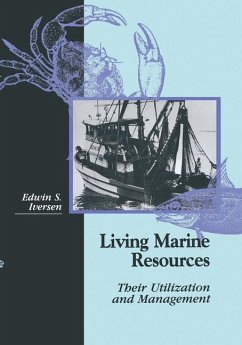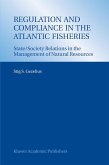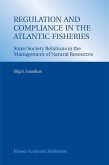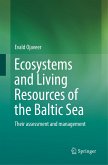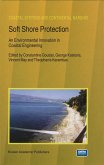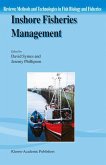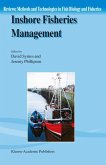Living Marine Resources provides a thorough, up-to-date introduction to all aspects of fisheries science. This clearly written text offers insight into a topic of increasing importance--the wise utilization and management of sea fisheries to maximize production without exceeding their carrying capacity. Adoption of the approaches presented will improve the conservation and management of the many world fisheries that are suffering from years of inefficient practices. The book is divided into five sections, beginning with an introduction to the ocean environment and the various resource species. Part two examines fisheries biology, including age, growth, fecundity, and mortality, enabling readers to appreciate yield models designed to give estimates of maximum sustainable yield and maximum economic yield. The third part covers gear, methods, and landings and includes material on the handling and processing of seafood as well as aquaculture. In part four, yield models are presented to introduce students to theories on population dynamics, stock assessment, and management. The book concludes with coverage of recreational fisheries, including socioeconomic importance, catch and effort research, management techniques, and their interface with commercial fisheries. Living Marine Resources is an invaluable introduction to the subject for advanced undergraduate and graduate students of fisheries science. In addition, the material presented will be valuable to fishery and social scientists, fishery officers and administrators, and students in biology, engineering, economics, and law.
Hinweis: Dieser Artikel kann nur an eine deutsche Lieferadresse ausgeliefert werden.
Hinweis: Dieser Artikel kann nur an eine deutsche Lieferadresse ausgeliefert werden.
"A text that provides a current introduction to all aspects of fisheries science, for advanced undergraduate and graduate students." -- Sci Tech Book News
"This book should be a valuable introduction to the subject of marine resources at the college level. In addition, the material is valuable to fishery and social scientists, fishery officers and administrators, and students in biology, engineering, economics and law." -- Aquaculture Magazine, August 1996
"This text offers insight into a topic of increasing importance-the wise utilization and management of sea fisheries to maximize production without exceeding their carrying capacity. Adoption of the approaches presented will improve the conservation and management of the many world fisheries that are suffering from years of inefficient practices." -- American Institute of Fishery Research Biologists, December 1996
"This book should be a valuable introduction to the subject of marine resources at the college level. In addition, the material is valuable to fishery and social scientists, fishery officers and administrators, and students in biology, engineering, economics and law." -- Aquaculture Magazine, August 1996
"This text offers insight into a topic of increasing importance-the wise utilization and management of sea fisheries to maximize production without exceeding their carrying capacity. Adoption of the approaches presented will improve the conservation and management of the many world fisheries that are suffering from years of inefficient practices." -- American Institute of Fishery Research Biologists, December 1996
A text that provides a current introduction to all aspects of fisheries science, for advanced undergraduate and graduate students. _ Sci Tech Book News; This book should be a valuable introduction to the subject of marine resources at the college level. In addition, the material is valuable to fishery and social scientists, fishery officers and administrators, and students in biology, engineering, economics and law. - Aquaculture Magazine, August 1996; This text offers insight into a topic of increasing importance-the wise utilization and management of sea fisheries to maximize production without exceeding their carrying capacity. Adoption of the approaches presented will improve the conservation and management of the many world fisheries that are suffering from years of inefficient practices. - American Institute of Fishery Research Biologists, December 1996

